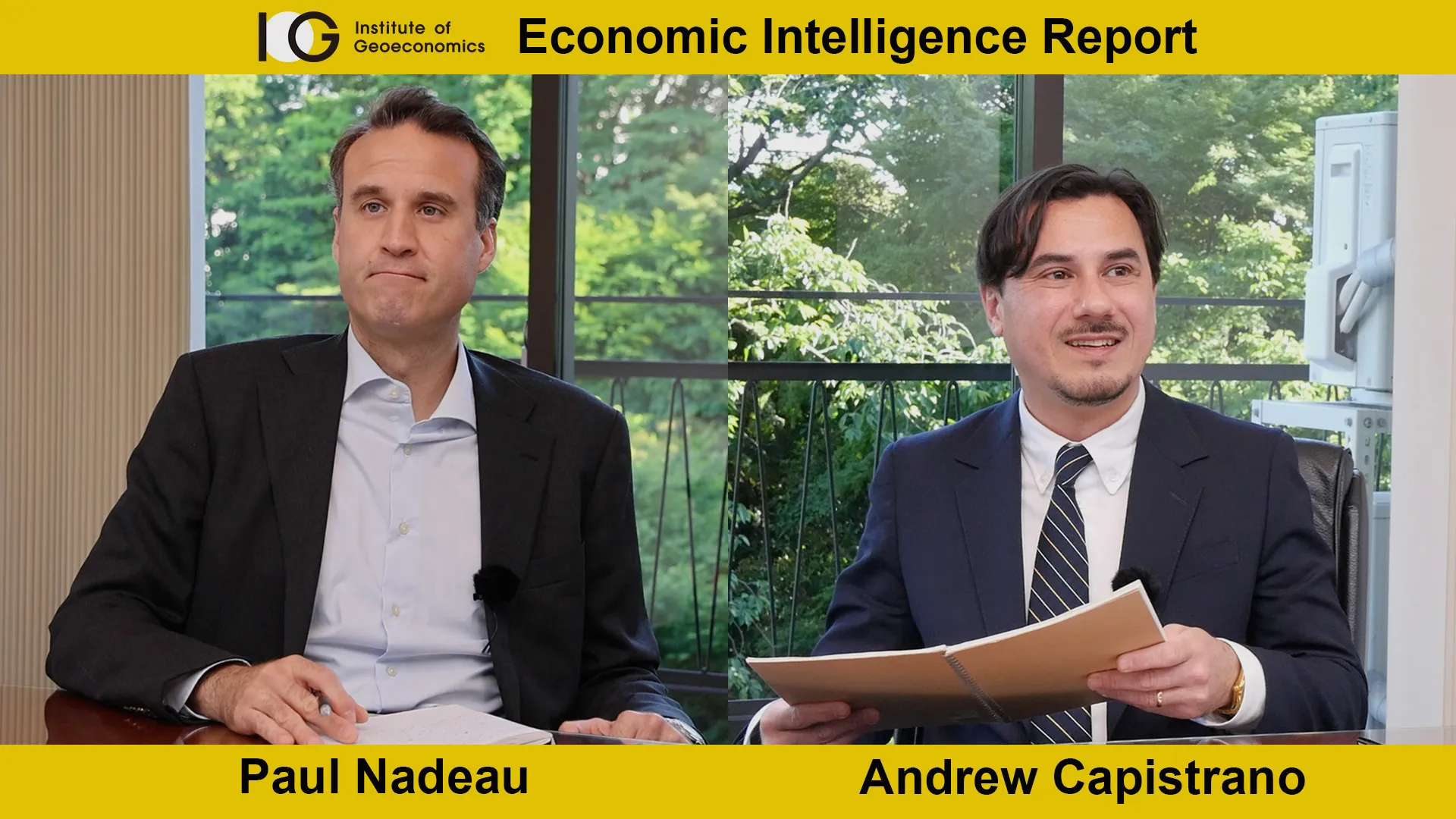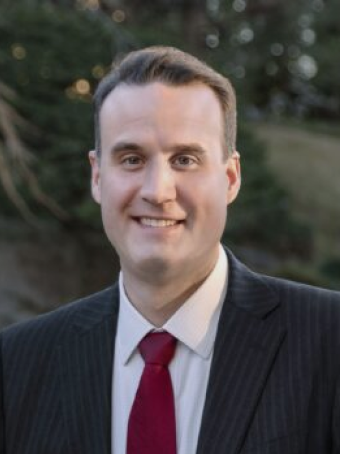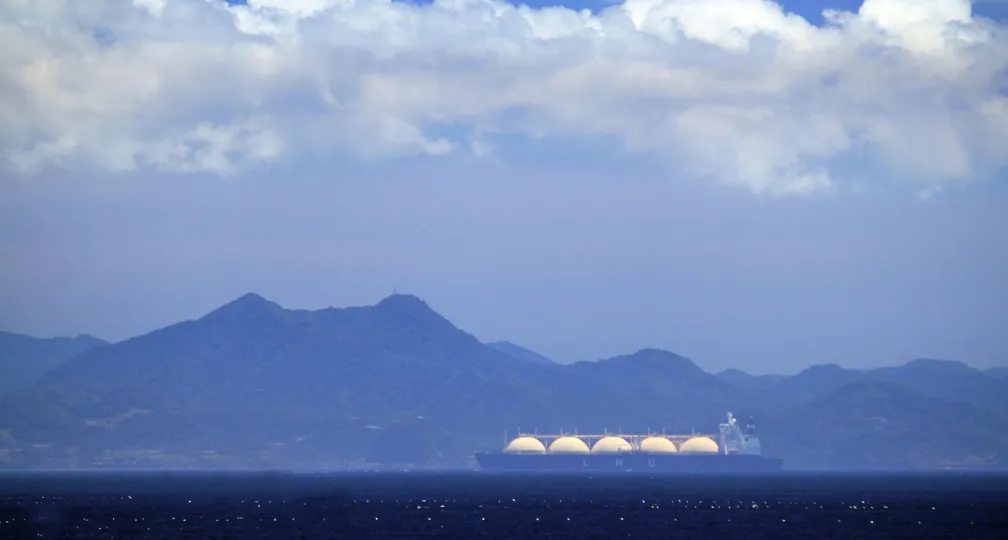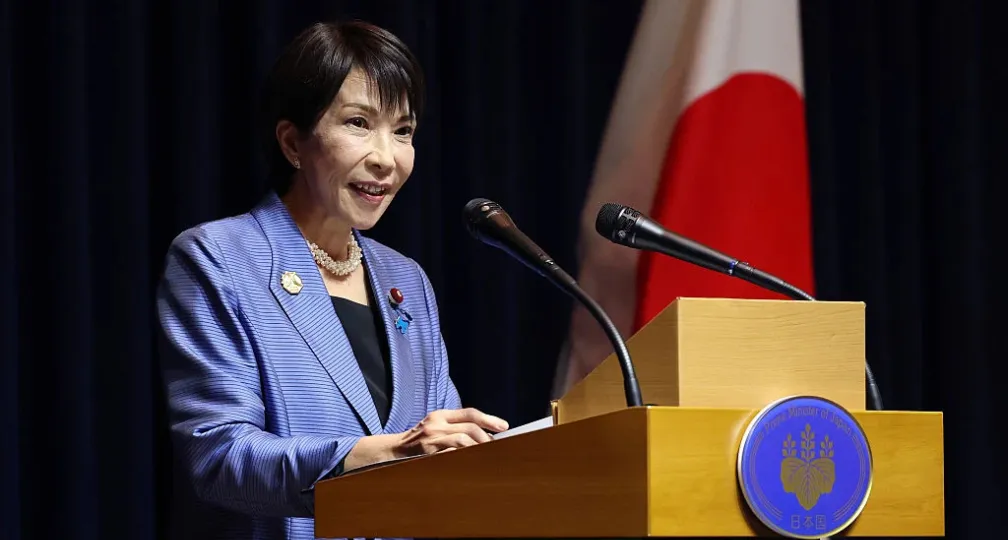IOG Economic Intelligence Report (Vol. 3 No. 8)

The latest regulatory developments on economic security & geoeconomics
Kishida Meets Biden in DC: Japan’s Prime Minister Kishida Fumio visited Washington, DC for a state visit with U.S. President Joe Biden. The visit included an address to a joint session of Congress, a trilateral meeting with President Biden and Philippine President Fernando Marcos Jr., and a visit to an electric vehicle battery factory in North Carolina built by Toyota and a Honda aircraft factory. While the deliverables primarily focused on defense cooperation, the visit also saw the establishment of a new Forum on Defense Industrial Cooperation, Acquisition, and Sustainment (DICAS) was announced to improve defense industrial cooperation, as well as the announcement of efforts in personnel exchange programs, sustainable value creation, academic partnerships in AI research, and coordination on economic security.
Microsoft Investment in Japan: In conjunction with Kishida’s visit, Microsoft announced that it would invest $2.9 billion over two years in hyperscale cloud computing and artificial intelligence infrastructure in Japan. Specific projects include digital training skills to train more than 3 million people over the next three years and working with the Japanese government to strengthen cybersecurity resilience.
Yellen Visits China: U.S. Treasury Secretary Janet Yellen concluded her visit to China having secured a commitment from China’s leaders for further discussions to address issues of overcapacity and the risk of flooding global markets with cheap imports, particularly in electric vehicles and other green technologies. There was also an agreement to launch a forum to address money laundering and illicit finance.
New Rules for CFIUS: The U.S. Treasury Department announced new rules for the Committee on Foreign Investment in the United States (CFIUS). Announced on April 11, the proposed rules will shorten the timeline to negotiate mitigation agreements, expand the range of information CFIUS will require from parties, and increase penalties per violation. According to analysists, the new rules reflect the Committee’s renewed focus on mitigation and enforcement.
China Drops Australian Wine Tariffs: China officially dropped its tariffs on Australian wine in an announcement on March 28 while Australia agreed to drop its proceedings at the World Trade Organization. China had imposed tariffs of 200% on Australian wine in response to the Australian government’s calls for an investigation into the origins of the COVID-19 virus and for barring Chinese telecommunications firm Huawei from bidding for the development of Australia’s 5G network. The Australian government has said it will continue to lobby China to remove the remaining tariffs imposed in 2020, such as those on beef and lobster. The tariffs are estimated to have cost the Australian wine industry approximately $1.37 billion.
DHS Cracks Down on Illicit Textile Trade: On April 5, the U.S. Department of Homeland Security (DHS) announced a set of enforcement actions to crack down on the illicit trade in textiles, a move that DHS said would help protect more than 500,000 U.S. jobs in the textile industry. These measures include foreign location visits, information sharing, and enhanced inspection and testing.
Analysis: Kishida Makes Japan’s Case in DC
Official visits by heads of state can have a ritualistic tone, more ceremony than substance. Visits by Japanese prime ministers to the United States seem to be particularly prone to this (especially since no one has yet been able to top Koizumi Junichiro’s Elvis impersonation during his visit to Graceland in 2006). Still, there’s value in ceremony and bringing staff together to coordinate the visit and prepare the joint statement offers an opportunity for collaboration and idea-sharing. They also serve as opportunities to take stock of where the relationship is in a given moment, such as in Abe Shinzo’s 2013 visit where he conveyed the message that “Japan is back” after the mismanagement during the Democratic Party of Japan’s rule. This time, the message was to emphasize Japan’s political and economic alignment with the United States – a message that may not have been as direct as those in the past, but one that was still meaningful.
A lot has been written about divisions between the two countries, particularly in terms of their vision for economic integration, and while the divisions are real, the commonalities are much stronger. And while a message of unity is part of the routine of these visits, in this case it also served as a signal to other powers (specifically China and Russia) amidst these countries’ continued assertiveness in the region. It also served as a signal to U.S. domestic politics as well in the midst of a presidential election. Described by President Biden as “the most significant upgrade in our alliance since it was first established”, the deliverables from the visit underline the need for unity and deterrence – roughly 70 agreements on defense and security cooperation, including a joint military command structure to improve cooperation and interoperability, a new air missile defense network developed with Australia, and even an announcement that a Japanese astronaut will become the first non-American to walk on the Moon as part of the upcoming NASA moon missions. These steps to institutionalize Japan’s defense cooperation with the United States will make it harder for Donald Trump to upend the alliance as he’s sometimes suggested and gives Japan an extra layer of insurance if a second Trump administration tries to undermine U.S. alliances. At the same time, expanding joint development projects with other countries and institutionalizing cooperation with South Korea gives Japan something of a further hedge against U.S. unpredictability.
One intended recipient of the visit’s message of unity would have been Donald Trump, an alliance skeptic and trade skeptic who is generally ambivalent about U.S. alliances and has signaled that U.S. commitments to its allies are maybe more conditional than before. Trump’s reelection would mark a return to the high-maintenance, unpredictable period from 2017-2021 when Abe invested considerable personal, political, and diplomatic capital to keep Japan-U.S. relations on a steady course. If Trump returns to the White House, it’s worth managing expectations of how a future Japanese prime minister, like Kishida, could manage the relations with Trump. Whoever Trump’s counterpart in Tokyo will be, they won’t have the same relationship with Trump that Abe had – no one could, and it’s worth asking if they should even try – but there are still experienced hands left from the first Trump administration and Trump’s style is a known commodity now so it won’t be a complete leap into the unknown.
Kishida’s message may also have been an oblique message to Democrats who may not share Trump’s wide-reaching skepticism of U.S. alliances but are still skeptical about the international economic relationships that are so important to Japan, including in its relationship with the United States. While Kishida explicitly avoided commenting on Nippon Steel’s proposed acquisition of U.S. Steel as a matter between two private companies, his visit to Toyota and Honda facilities in North Carolina, deliberately or not, would have highlighted the role of Japanese companies in creating U.S. jobs.
There was more than symbolism though – the deliverables from the visit also helped highlight how much more there is to bilateral economic ties than the Nippon Steel case – Japan is the top foreign investor in the United States with over $800 billion in investment, including an $8 billion investment by Toyota for advanced battery production, while Microsoft announced a $2.9 billion investment to support Japan’s AI and cloud computing development. That these investments are in advanced fields like these is also significant given the centrality of these fields to economic security and demonstrates that even in the absence of a trade liberalization program, these economies are still well-integrated in ways that are mutually beneficial.
The message of mutual gains is something that the United States should internalize beyond the typical tropes of unbreakable alliances or ironclad commitments. For one, and beyond the investment projects, there should be a recognition that the United States needs Japan as much as Japan needs the United States, because Japan has done a lot of the heavy lifting on building a rules-based economic architecture in the Indo-Pacific and beyond as U.S. activity in this space is constrained by the country’s domestic politics. The United States is becoming more unpredictable even beyond the question of the upcoming election, the only question is how unpredictable and on what issues, and decision makers need to appreciate how its partners are internalizing that unpredictability and trying to work around it.
A successful visit shouldn’t be a surprise because it plays to Kishida’s strengths. Kishida deserves more credit than he gets – he’s clearly not as assertive as Abe Shinzo and extremely unpopular politically, but he’s managed to make significant steps to strengthen Japan’s alliance with the United States by expanding and entrenching Japan’s ability to cooperate on joint defense projects and to continue meaningful economic integration. State visits might be ritualized, but this time the substance was real and will help the alliance weather the coming challenges.
Disclaimer: The views expressed in this IOG Economic Intelligence Report do not necessarily reflect those of the API, the Institute of Geoeconomics (IOG) or any other organizations to which the author belongs.
API/IOG English Newsletter
Edited by Paul Nadeau, the newsletter will monthly keep up to date on geoeconomic agenda, IOG Intelligencce report, geoeconomics briefings, IOG geoeconomic insights, new publications, events, research activities, media coverage, and more.


Visiting Research Fellow
Paul Nadeau is an adjunct assistant professor at Temple University's Japan campus, co-founder & editor of Tokyo Review, and an adjunct fellow with the Scholl Chair in International Business at the Center for Strategic and International Studies (CSIS). He was previously a private secretary with the Japanese Diet and as a member of the foreign affairs and trade staff of Senator Olympia Snowe. He holds a B.A. from the George Washington University, an M.A. in law and diplomacy from the Fletcher School at Tufts University, and a PhD from the University of Tokyo's Graduate School of Public Policy. His research focuses on the intersection of domestic and international politics, with specific focuses on political partisanship and international trade policy. His commentary has appeared on BBC News, New York Times, Nikkei Asian Review, Japan Times, and more.
View Profile-
 Japan’s Sea Lanes and U.S. LNG: Towards Diversification and Stabilization of the Maritime Transportation Routes2026.02.24
Japan’s Sea Lanes and U.S. LNG: Towards Diversification and Stabilization of the Maritime Transportation Routes2026.02.24 -
 Fed-Treasury Coordination as Economic Security Policy2026.02.13
Fed-Treasury Coordination as Economic Security Policy2026.02.13 -
 What Takaichi’s Snap Election Landslide Means for Japan’s Defense and Fiscal Policy2026.02.13
What Takaichi’s Snap Election Landslide Means for Japan’s Defense and Fiscal Policy2026.02.13 -
 Challenges for Japan During the U.S.-China ‘Truce’2026.02.12
Challenges for Japan During the U.S.-China ‘Truce’2026.02.12 -
 India and EU Sign Mother of All Deals2026.02.09
India and EU Sign Mother of All Deals2026.02.09
 Orbán in the Public Eye: Anti-Ukraine Argument for Delegitimising Brussels2026.02.04
Orbán in the Public Eye: Anti-Ukraine Argument for Delegitimising Brussels2026.02.04 Fed-Treasury Coordination as Economic Security Policy2026.02.13
Fed-Treasury Coordination as Economic Security Policy2026.02.13 When Is a Tariff Threat Not a Tariff Threat?2026.01.29
When Is a Tariff Threat Not a Tariff Threat?2026.01.29 Oil, Debt, and Dollars: The Geoeconomics of Venezuela2026.01.07
Oil, Debt, and Dollars: The Geoeconomics of Venezuela2026.01.07 India and EU Sign Mother of All Deals2026.02.09
India and EU Sign Mother of All Deals2026.02.09














